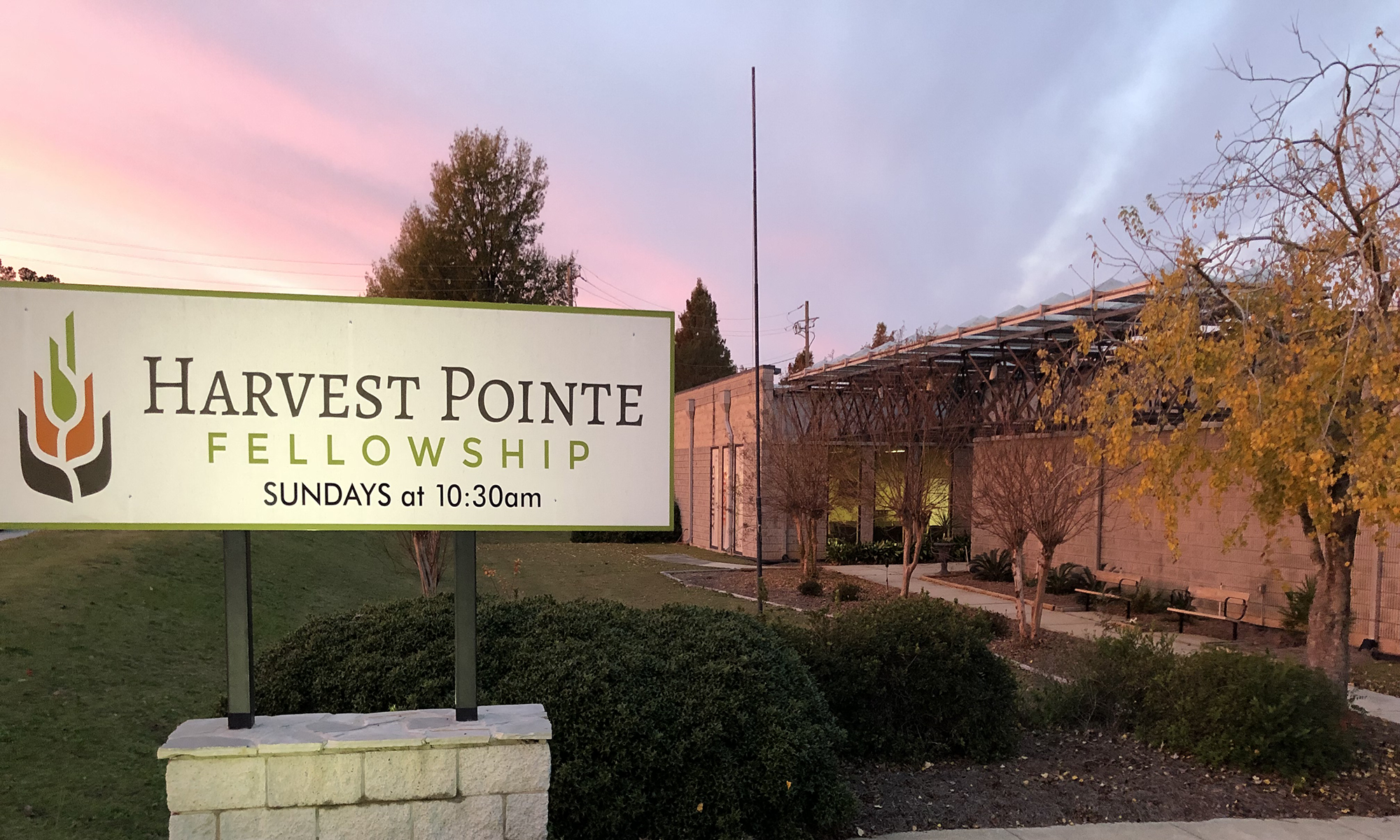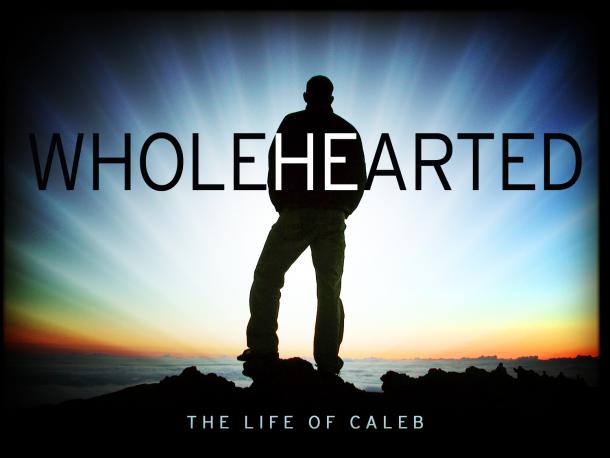Besides God, there are two main characters throughout this stage of our study of Joshua: obviously Joshua is one of them, and the other is Caleb. Caleb is one of the spies who entered the Promised Land the first time– all the other spies gave reports of giants and fortified cities and how it would be impossible to take this land but Caleb (and Joshua) stuns everyone by boldly proclaiming that they should enter the land because God had already given them the victory. No one listened to him and the children of Israel are forced to wander the wilderness once more. We should not be surprised to learn that the name “Caleb” comes from Hebrew and means “wholehearted”. Caleb is a man who lived his entire life with wholehearted devotion to God’s purpose.
As Chris taught us on Sunday, Caleb is one of the unsung heroes of the Bible. He stands as a shining example of one who never lost his edge spiritually. He himself said at age 85, “I am as strong this day as on the day that Moses sent me; just as my strength was then, so now is my strength for war, both for going out and coming in” (Joshua 14:11 NKJV). This demonstration of courage must have unnerved the other men. They may even have thought him senile.
At this point of our study of Joshua, God’s people have taken much of the long awaited Promised Land and Joshua was dispensing portions of it to the tribes. However, Caleb steps forward to claim that which had been promised him by Moses. In fact, Caleb asks for the land that he had surveyed as much younger man.
In response, Joshua granted his faithful friend Caleb what he asked. He gives Caleb Hebron. The old man proved he had not yet exhausted his courage, when he said:
Now therefore, give me this mountain [the land of Hebron] of which the Lord spoke in that day. . (Joshua 14:10–12 NKJV)
The other men of Israel must have breathed a sigh of relief that Caleb had chosen this portion of land. This was not some beautiful, green pasture; it was one of the most treacherous mountainous areas of the Promised Land. Even more problematic was the fact that formidable adversaries inhabited this land. This was the home of the sons of Anak, the very same giants that terrified the 10 spies sent by Moses. No one wanted to take on the giants except 85-year-old Caleb. Can’t you just envision him holding up that muscular old arm, saying, “Give me this mountain”?
I love the boldness of this man of God. I can just see Caleb running up that mountain. I can see him as he slays his adversaries. He was victorious. He had been strong all those years and he finished well.
Let me share several principles with we learn from Caleb’s life that can give us this same spiritual stamina we need to run and indeed finish in the race of life well.
1. Follow the Lord 100 percent. Scripture says again and again that Caleb “wholly followed the Lord.” It’s in Joshua 14:8–9 and verse 14: Joshua blessed Caleb and gave the old man what he asked because “he wholly followed the Lord God of Israel.”
This is clearly a key to Caleb’s spiritual success. But what does it mean to “wholly follow the Lord”? It means that you must fully follow our Lord not halfheartedly, but completely. One hundred percent.
Are you wholly following the Lord your God? If you are not, you will eventually be picked off. It is only a matter of time until you become a casualty in the race of life.
2. Don’t compromise—stand your ground. At the risk of being ostracized, Caleb took a stand for what he knew was true. He knew he needed to be more concerned with God’s approval than man’s approval. And for this, he was rewarded.
As you walk with the Lord, you will face many temptations to cave in to peer pressure, to do what everybody else does. But if you are going to fully follow the Lord, then, like Caleb, you must make this principle operative in your life. Stand firm and seek God’s pleasure, no one else’s.
3. Take God at His Word. Caleb didn’t win immediate entrance to the Promised Land. First, he had to wander around with those ungrateful, complaining Israelites for 40 years. They said things like “We remember the good old days back in Egypt, where we had garlic, leeks, and onions.”
Despite the Israelites’ childish clinging to conjured memories, Caleb hung on to the promises of God. He knew God would be faithful, regardless of the time frame. Caleb trusted God’s word to him. We can do the same.
4. Long for fellowship with your God. Caleb asked for a place in the Promised Land called Hebron. There is something very interesting about the name Hebron, which—in the original language—means “fellowship, love, and communion.” Hebron is where Abraham met with God face-to-face and received the promise of the new land in the first place.
Caleb yearned for fellowship with God. While the other Israelites longed for Egypt, Caleb longed for Hebron. While the others looked back in dread, Caleb looked forward with fearless anticipation. While others wanted to please themselves, Caleb wanted only to please God.
This is an essential key to spiritual longevity. You must always move forward. You must always seek to grow spiritually and never look back. That’s what will keep you going.
If you are living this Christian life for others’ applause, you won’t make it. You have to run empowered by your love for God.
Questions for thought:
1. Have you ever felt resentful or burdened by something God was calling you to do?
2. One justification for not helping or serving is that feel we need time for ourselves, for our studies, for our work, for our own rest. While easy to understand, what do you think is wrong with this mindset?
3. When was the last time you felt excited and even proud to have the chance to serve? What made that situation so different?
4. What are some practical ways you can begin to see serving God as your privilege rather than your burden?
Resources:
Leon Mauldin – Caleb Inherits Hebron
Don Gommesen Ph.D – Caleb’s Faith
Stephen Sizer – Wholehearted Caleb


